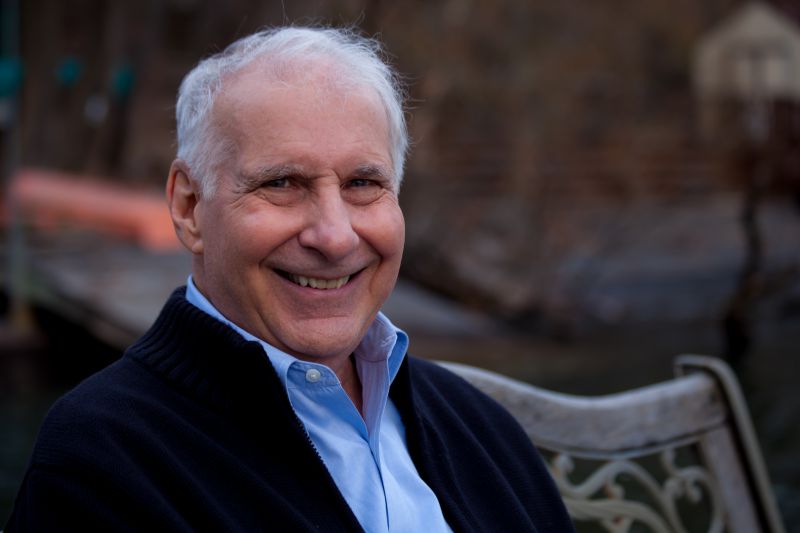Antidepressant Madness Strikes Baseball Pitcher Jeff Reardon
- January 12, 2006
- / Admin
- / ssri-articles

By Peter R. Breggin, M.D.
January 12, 2006
A report in the January 9th Newsweek asks about retired star baseball pitcher Jeff Reardon, "Did drugs make a star hurler rob a jewelry shop?" The story has been all over the media. Apparently taking numerous antidepressants, Jeff Reardon, a wealthy former baseball player, impulsively robbed a jewelry store armed with the threat of a non-existent gun. Instead of walking out with valuable jewelry, he left with $170 in a bag. Reardon was so aghast by his own actions, he turned himself in to a security guard on the way out of the mall, explaining to the surprised guard, "I completely lost my mind.” Later he told the police, “I flipped on my medications.” Reardon had been in treatment following the death of his son by an overdose two years earlier. A ccording to Newsweek, those who know the four-time All-Star describe him as “a quiet, generous soul.” With reported career earnings of more than $11 million, “he had little reason to rob and no prior criminal record.” Is this just an excuse? A concocted defense to get a celebrity out of hot water? Sadly, no. As a medical expert and psychiatric consultant, I’ve seen dozens of similar cases. Many people have asked me to testify on their behalf or to write reports to mitigate their sentences. Others have come to me afterward for help in understanding what happened to them. Many of the cases I’ve evaluated have an eerie similarity to Reardon’s. A man taking Prozac, along with the tranquilizer Xanax, robbed his wife’s bank, another bank near his mother’s house, and his own local drug store — wearing almost no disguise and armed with a spent air pistol. Before entering the bank for one of the robberies, he parked his vintage automobile out front and chatted about it with a passerby who was able to identify the vehicle down to the design on its hubcaps. Before robbing the drugstore cashier, he stood dutifully on line chatting with customers. His disguise? His wife’s prescription sunglasses. At the last robbery, police surrounded the bank as he walked out. Acting oblivious of their presence, he walked right through the stunned officers to get into his car. He drove off in a hail of bullets and was fortunately captured without being injured. Based in part on my testimony, a judge found him not guilty due to insanity caused by intoxication with psychiatric drugs. In another case, a college student on Paxil robbed numerous local gas stations, driving the same automobile he and his family regularly used to patronize these same stations on dozens of occasions. He wore no disguise and armed himself with a kitchen knife. Remarkably he went unrecognized until an image from a surveillance camera was flashed on television. After he was arrested for eight almost identical local gas station robberies, he was released briefly before beginning his sentence. He went on to rob yet another local gas station in the same fashion. He might have spent much of the rest of his life in jail if the prosecution hadn’t been persuaded by my report that he was acting under the influence of the antidepressant. Both of these individuals were suffering from antidepressant-induced manic reactions that completely obliterated their judgment and led them to take actions that were wholly out of character for them. Like the baseball star, they were upstanding people with no criminal records. The outcomes can be even more tragic. A man taking Paxil became acutely suicidal. On the spur of the moment, he drove his automobile into a helpless policeman whom he happened to notice getting out of his patrol car. He then jumped on the injured policeman in order to obtain his gun to use it to kill himself. Fortunately, the officer and another man subdued him. After reading my report, even the injured officer concluded that his attacker had been driven by medication madness. He was a model citizen who had no history of violence or criminality. This is only the beginning of the dozens of cases I have investigated in which individuals have committed criminal acts, including multiple murders and suicide, while taking antidepressants. In each case I had the opportunity to review the individual’s medical, educational and occupational records, and to interview friends and family. Often I also had the benefit of opinions from other experts. Whenever the individual was alive, I was able to interview him. Women also experience these drug intoxication reactions. I was a consultant in one case in which a woman murdered her son and nearly killed her daughter shortly after an increase in her dose of Zoloft. While experiencing antidepressant-induced manic-like reactions, women and men often commit more petty crimes, such as shoplifting or stealing tools. Sometimes the thefts become extremely bizarre. A man taking antidepressants and stimulants stole massive pieces of equipment from construction sites and parked them in plain sight around his home. As a health professional, he had no use for them. Medical doctors, including psychiatrists, are not immune from these reactions. I’ve consulted in cases where psychiatrists and surgeons have committed violent, unprovoked assaults while taking antidepressants. Despite medical training and experience, the individual experiencing these drug reactions typically has no idea what is happening to him and does not recognize the medication-induced mania. In most of the cases of drug-induced mania that I’ve evaluated, the individual has not suffered similar reactions before taking the drug. Often after a short course of treatment or during a change in dosage, they begin to display varying degrees of impaired judgment, the inability to anticipate consequences, wildly generating thoughts, excess energy, bizarre planning, feelings of invulnerability and omnipotence, extreme irritability, impulsivity and aggression. They can switch into depression with suicidal impulses. Sometimes the manic-like symptoms are subtle and sometimes they are grossly apparent. Often these victims of drug intoxication can qualify under the law for a plea of not guilty by reason of involuntary drug intoxication. An involuntary intoxication plea can be made only when the individual has no prior knowledge of being given a drug that could put him at risk of becoming mentally disturbed. In all of the cases I’ve described, no one warned them that antidepressants could make them act crazy. People who act badly while drinking alcohol or taking cocaine cannot claim an involuntary intoxication because of these drugs. The law presumes that they should have anticipated the risks. The newer antidepressants including Prozac and its knock-offs Zoloft, Paxil, Luvox, Celexa, and Lexapro commonly cause some degree of over-stimulation. The effects are not unlike those of cocaine and amphetamine, and both the Prozac-like drugs and the stimulants impair function of the neurotransmitters serotonin and dopamine. Some of the other newer antidepressants, including Effexor, Serzone, Cymbalta and Wellbutrin can have similar effects. No one knows the frequency of very severe reactions to the antidepressants. Some studies indicate that some degree of clinically significant over-stimulation and mania is caused in 5%-10% of all patients taking these drugs. This is an astronomical risk. I have reviewed the scientific studies in my books and medical articles which can be downloaded from my website. In 2004 the FDA issued warnings about suicides in children caused by antidepressants. The FDA now requires all antidepressant labels to carry a list of potential side effects that include aggression, hostility, impulsivity, agitation, and mania. More recently, the FDA announced that it is concerned about the possibility of antidepressants causing suicide in adults. All of these warnings have come more than a decade too late. I first warned about the risk of antidepressant madness caused by Prozac in Toxic Psychiatry in 1991. Since then I have described many cases of antidepressant madness in my books, including Talking Back to Prozac (1994) and The Antidepressant Fact Book (2001), as well as medical textbooks and peer-reviewed scientific articles that can be found on my website. Stopping antidepressants can also be dangerous. Many of them cause severe withdrawal reactions, including violent and suicidal impulses. In one case that I evaluated, a young man assaulted a friend after missing one or two doses of Paxil. Especially if the drugs have been taken for months or years, withdrawal should be done slowly, carefully and with experienced clinical supervision. If possible, a friend or close relative should be told about the drug withdrawal in order to help detect withdrawal reactions. Antidepressants, as their name implies, are most often prescribed for depression. There is increasing scientific evidence, also cited in my books, that they don’t work at all for treating depression in children and that they work marginally or not at all for treating depression in adults. Beyond that, there are many alternatives to overcoming those potentially dreadful and demoralizing emotional conditions. Depending on the individual and the severity of the distress, other approaches include individual psychotherapy, family therapy, religion, life style changes, and exercise. Depression can be a dreadful and even deadly experience, but so can the effects of taking antidepressants. It’s best to find solutions that do not impair your mental processes. Psychiatric Reform Accomplishments
Psychiatric Reform Accomplishments